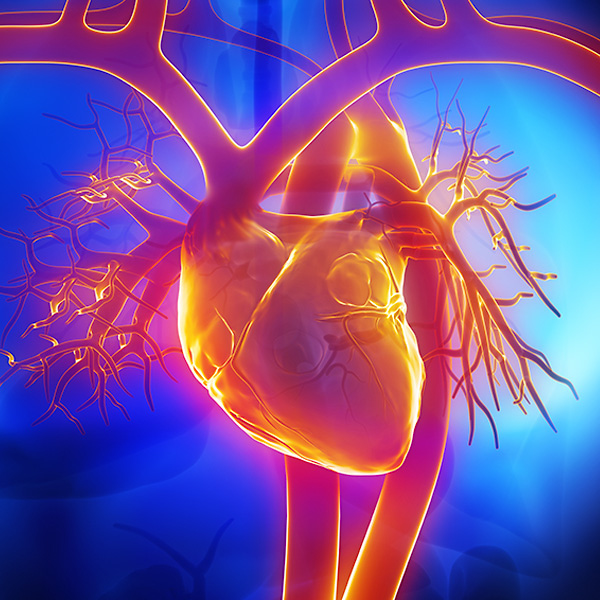Cardiac Arrest
Overview and Facts about Cardiac Arrest
Cardiac arrest is a heart condition in which the heart pumping suddenly stops. Around 300,000 people are treated for cardiac arrests outside of the hospital annually.
Signs and Symptoms of Cardiac Arrest
Signs and symptoms of cardiac arrest are intense and come about quickly. They include:
- Collapsing suddenly
- No pulse
- No breathing
- Total loss of consciousness
Although cardiac arrest typically happens with no warning, there may be signs and symptoms that appear prior to the event. These can include:
- Fatigue
- Fainting
- Palpitations
- Chest pain
- Dizziness
- Shortness of breath
- Weakness
- Vomiting
Causes and Risk Factors of Cardiac Arrest
The majority of cardiac arrest cases are caused by a malfunction in a diseased heart’s electrical system. The malfunction causes an abnormal heart rhythm, such as ventricular tachycardia or ventricular fibrillation. In some cases, bradycardia, an extreme slowing of the heart rate, can cause cardiac arrest.
Beyond abnormal heart rhythm conditions, other causes for cardiac arrest include:
- Heart tissue scarring — A previous heart attack or other heart condition could create scarring in the cardiac tissue, which could cause life-threatening arrhythmias.
- Cardiomyopathy — Cardiomyopathy is the thickening of the heart muscle caused by poorly controlled high blood pressure, genetics or infiltration of the heart muscle from abnormal substance like amyloidosis or sarcoidosis. Previous heart attacks, viral heart infections or alcohol-related heart muscle poisoning can also cause cardiomyopathy.
- Medications — Certain heart medications can trigger arrhythmias, which could lead to cardiac arrest. Medications that cause significant changes in blood levels of potassium and magnesium could also trigger arrhythmias and heart failure.
- Blood vessel conditions — Abnormalities of the lood vessels, which are normally present at birth, can cause cardiac arrest in rare cases.
- Drugs — Recreational drug use can lead to sudden cardiac arrest.
Lifestyle factors that can contribute to risk for cardiac arrest include family history, smoking, a sedentary lifestyle, advancing age and having had a previous heart attack.
Tests and Diagnosis of Cardiac Arrest
Cardiac arrest requires immediate identification and treatment, so a formal diagnosis and testing typically occur after the incident. Tests given by your doctor aim at determining the cause for cardiac arrest and preventing future episodes. These tests can include:
- Electrocardiogram — Electrodes attached to the chest can detect the electrical activity of the heart and reveal abnormalities in heart rhythm.
- Blood tests — Blood tests can measure levels of potassium, magnesium, hormones and other chemicals that may affect your heart's ability to function well.
- Imaging tests — Imaging tests, such as X-rays, echocardiograms, nuclear scans or cardiac CT scans can help check the state of heart health.
- Angiogram — During an angiogram, a dye is injected into the heart arteries through a catheter. The intracardiac blood flow and blood pressure are measured and the function of the heart valves are check to make sure the heart is working properly.
Treatment and Care for Cardiac Arrest
Emergency treatment, including CPR, should be administered immediately in order to have the best chances for survival after cardiac arrest. If you do not know CPR but someone collapses unconscious near you, call 911 or emergency medical help and begin pumping the person’s chest rapidly in the meantime.
Defibrillation is another critical component of early cardiac arrest treatment. It involves administering a shock through the chest wall to the heart, stopping the chaotic heart rhythm and often restoring normal rhythm.
After arriving at the emergency room and becoming stable, your doctor will create a treatment plan to avoid future cardiac arrests. This plan normally includes a combination of cardiac bypass surgery, angioplasty, implantable cardioverter-defibrillator (ICD) and medications.

Request an Appointment
Loyola Medicine heart and vascular specialists have the experience and technology to treat the most difficult cardiac and vascular conditions. Schedule an appointment today.
Schedule a Telehealth Appointment
